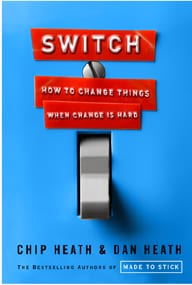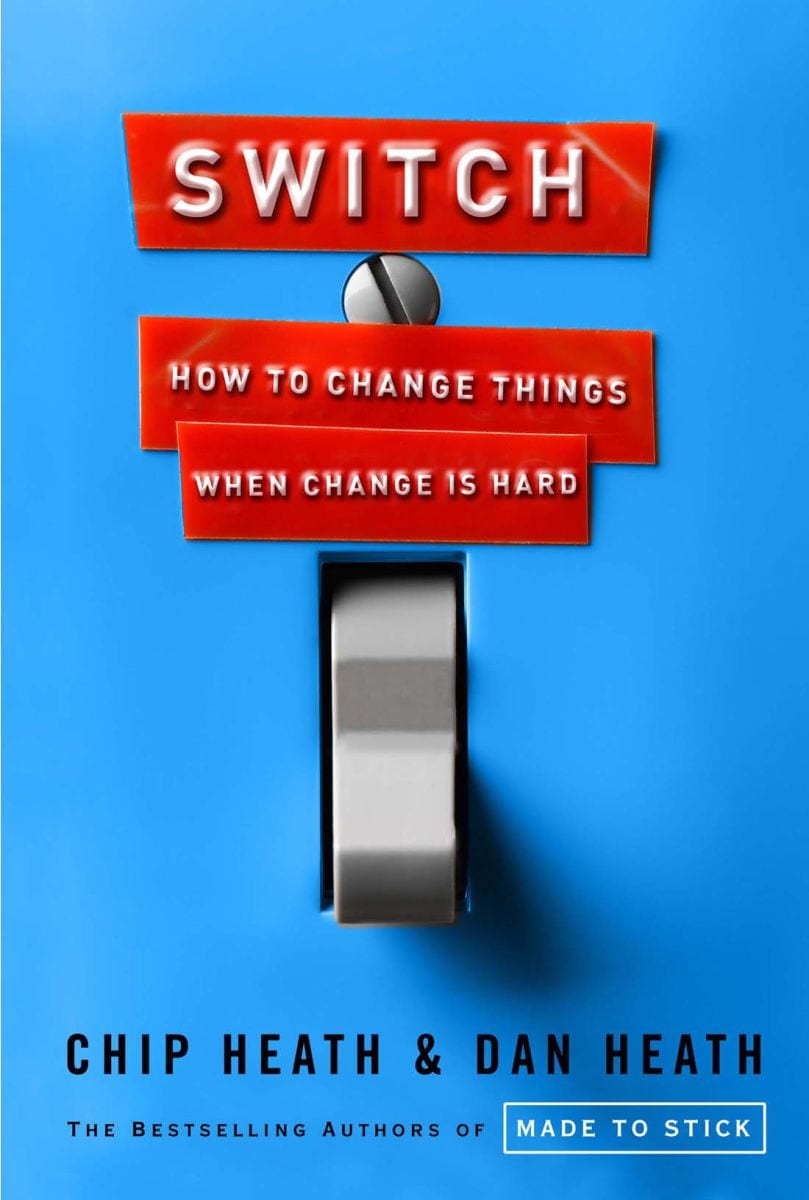Book Review: ‘Switch: How to Change When Change is Hard’ by Chip Heath and Dan Heath
 Written by Rich Rogers
Written by Rich Rogers
“Switch: How to Change When Change is Hard” by Chip Heath and Dan Heath
2010, Random House, Paperback, Kindle, Audio Book
322 pages


For decades, a guy from Yazoo City, Mississippi, by the name of Zig Ziglar ran around the country telling people how they could change their lives, using his down-home, folksy way with that Southern drawl and liberal doses of good humor and references to his Christian faith. For most of those years, a lot of people–especially academics–looked down their long noses at him, referring to him as a snake oil salesman, a huckster, and so on. Interestingly though, Ziglar always said he triple-checked everything he presented in his seminars factually, psychologically, and spiritually. Then along comes a book like “Switch: How to Change When Change is Hard” saying the same things Zig Ziglar did, but written by a couple of professors: Chip and Dan Heath.
The Heath brothers, who respectively teach at Stanford and Duke, take on how to make the changes you want to make when we all know it’s a tough thing to do. First off, the Heaths start with three surprising things about change: often the heart and mind fervently disagree, self-control is exhaustible, and what appears to be resistance is often a lack of clarity.
They present these using the metaphor of a man riding an elephant riding down a road. The rider is the logical brain; the elephant is our habits, beliefs, and emotions that more often than not control us more than we understand or are willing to admit; and the path is the environment which surrounds us as we seek to change.
From this point, the Heaths divide the book into three sections, each one focusing on dealing one of the parts of change: directing the rider, motivating the elephant, and shaping the path.
We’re all familiar with setting our own goals. We know we need to lose weight, find a better job, become more organized, be a better parent, etc… but despite intellectually knowing this, we don’t make the changes we need to make. Why?
That’s where all three of these areas come into play.
In “Switch,” the Heaths lay out how to deal with each part of the change process. In the intellectual side, they say to find the bright spots—the little things in a sea of darkness—and give yourself a clear idea of what you want to do.
When dealing with the biggest part, the proverbial elephant in the room that controls us instead of us controlling him, it comes down finding things that won’t overwhelm the elephant, making the changes small, and finding the emotion that will motivate the elephant to change.
And of course, environment always plays a part as well. Once again, changing the environment is often a matter of small things. One CEO found that despite her open-door policy, employees still felt she was aloof and uncaring. A simple rearrangement of her office layout changed everything.
As the Heath brothers present “Switch,” they cite all kinds of scientific and psychological studies (shades of Zig) and mix it with a lot of humor, wit, and anecdotes. I found myself chuckling and chortling throughout the book.
While “Switch” is presented as a business book, the methods and principles cited throughout this book are applicable to personal lives as well. In fact, the Heaths cite as many personal examples as corporate ones throughout the book.
As a piece on improving and changing, “Switch” stands up there with the best work of Zig Ziglar, who truly set the standard in this field. And this book goes on my shelf right next to my Ziglar titles. I can’t give it a better compliment.
Rich welcomes questions and comments from readers. You may reach him at [email protected].




